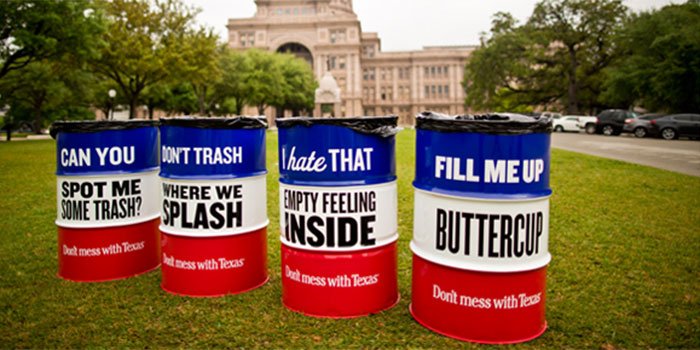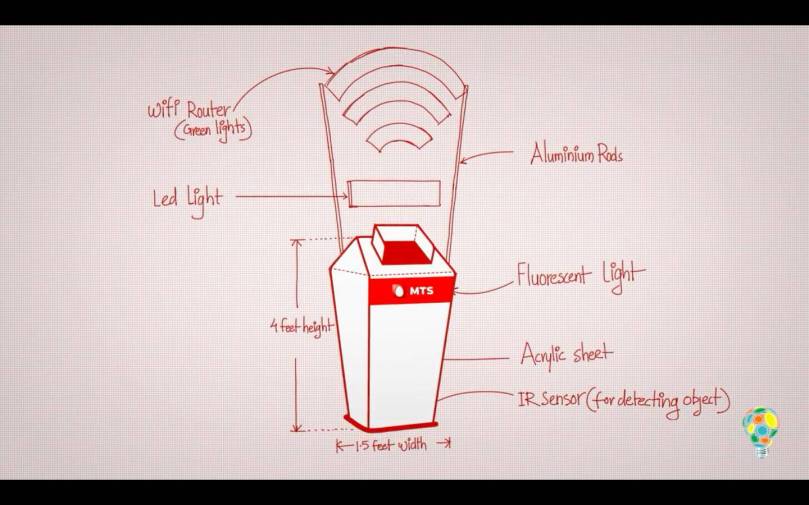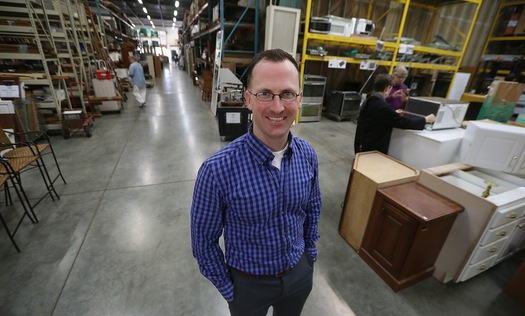
Forty or so years ago, New Orleans’ Canal Street was spotted with cans intended to take in a sizable share of the throw-aways generated by citizens and visitors alike – in an area, just opposite the edge of the French Quarter, where drinking in public is not just legal, it’s virtually encouraged. (Where else could you ask for a take-out cup for a beer you didn’t finish in a restaurant, as I had occasion to do last week.)
To encourage the proper disposition of empties and similar detritus, the cans were labeled, “Hey, Mister, Toss Me Something!”
The idea was a clearer one. Whether it accomplished the intended goal or not is an open question. But those cans now are minus that slogan.
Meanwhile, in Texas, where self-pride in one’s heritage is an apparent birthright, a less and more subtle approach has been taken to reducing what had become, a few years ago, an intolerable trash burden. The Texas Department of Transportation took the proverbial bulls by the horns and advertised for ad agencies to come up with a way to address the issue. They did, in spades.
Smithsonianmag.com recently described how an exec at one agency noted, on walking somewhere one day, that all the trash was, as he put it, “a mess.” In a flash, he had the slogan: “Don’t Mess With Texas.”
The slogan was initially promoted during the 1986 Cotton Bowl, when an ad put out the “Don’t Mess WiTh Texas” message.
Within three years, trash volume on the streets dropped 72% from the 1986 level. And the ‘Don’t Mess With Texas’ phrase took on a life of its own.
In time, the Texas Department of Transportation copyrighted the phrase in order to reap rewards from its use. As if it hadn’t already!

